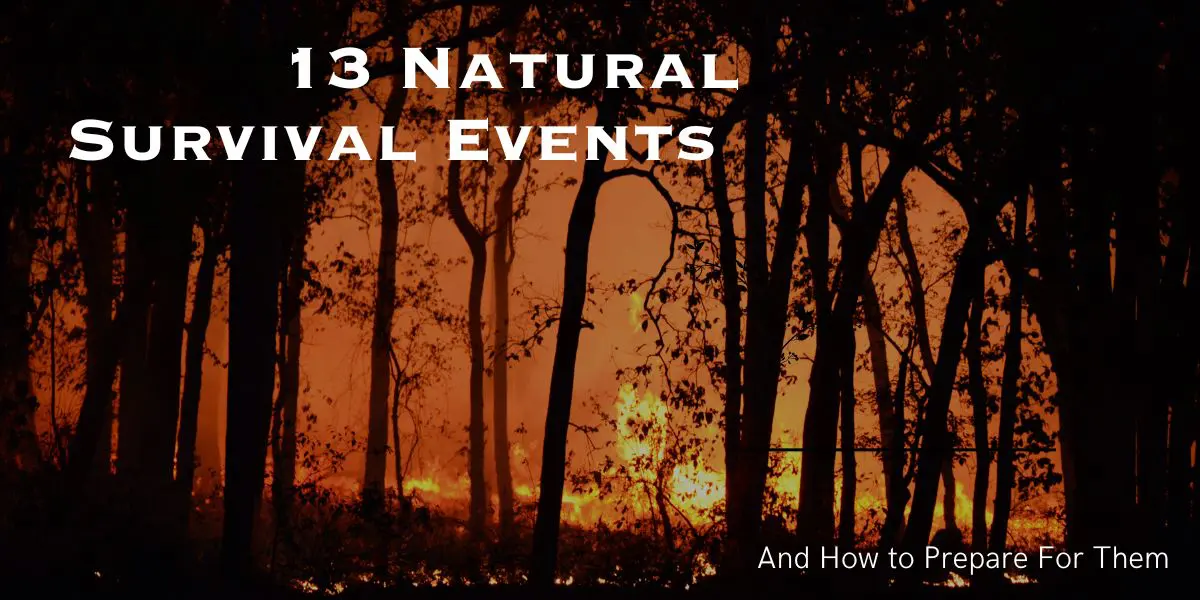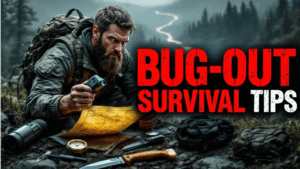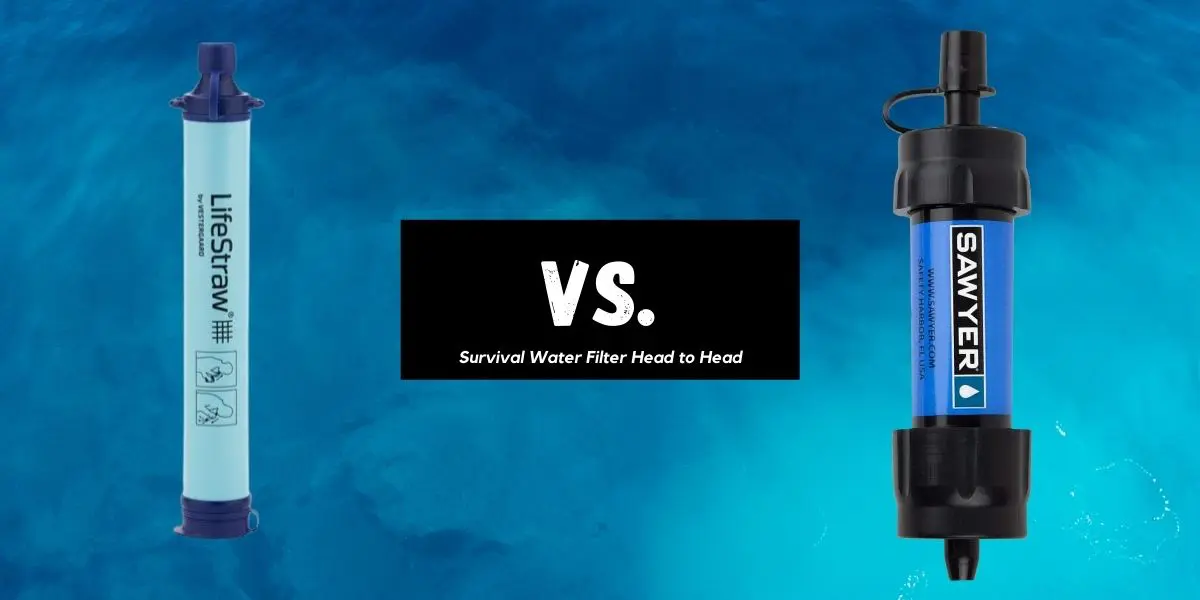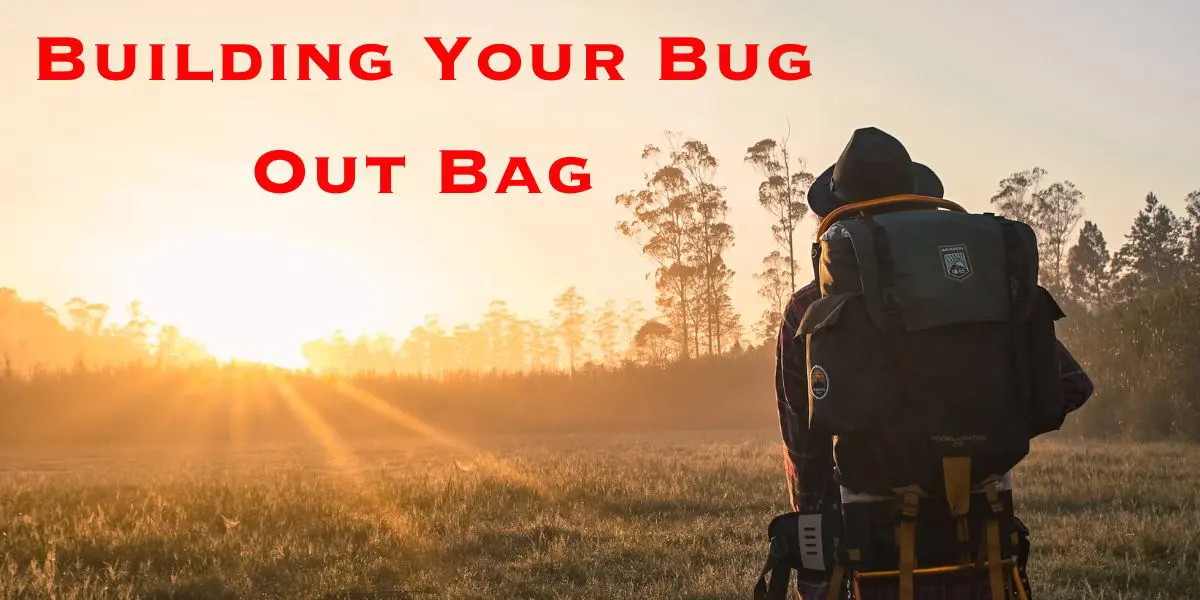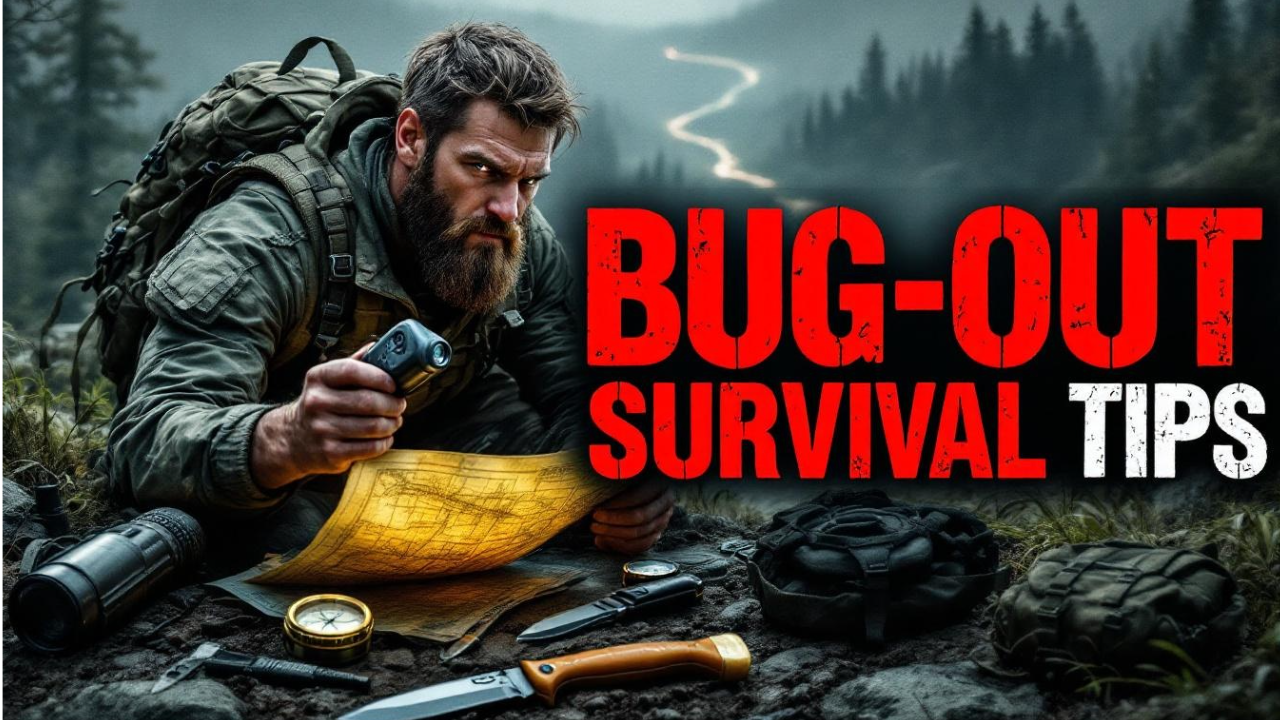In a world full of chaotic news and global unrest, you may sometimes feel as if it’s impossible to be fully prepared for whatever might happen. But there is one area of survival preparations that you can consistently be ready for: Mother Nature.
Like man-made events, some natural occurrences can be predicted based on studies and news – and some can occur in a split second without a moment’s notice. The thing about natural survival events is that you can assume they may occur in the future and be ready for them based on your geographic location.
Sometimes, you’ll receive advanced notice of days or weeks that might allow you to have ample time to bug out elsewhere or gather the supplies that you need. But you want to have the preparations on-hand well ahead of time so that if something happens unexpectedly, you won’t have to panic.
The preparations you have to make aren’t just gear and gadgets that you have to buy. It’s also the process of gaining the knowledge you need to safely navigate treacherous natural events that could pose a problem to you.
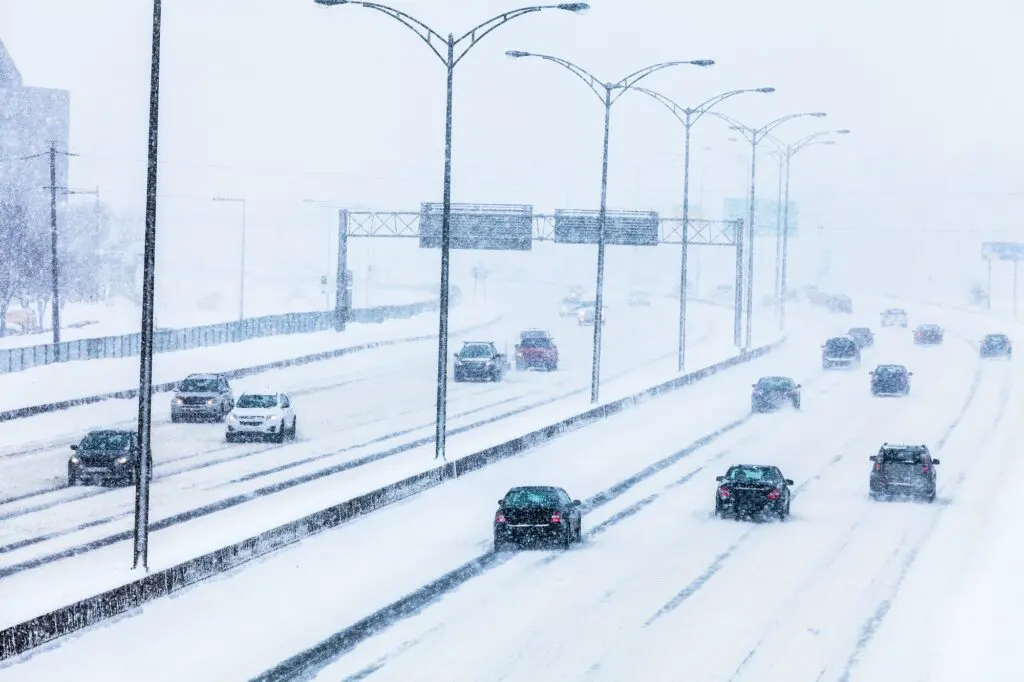
1 – Cold Weather Survival Events
Extreme cold weather conditions can cause everything from minor inconveniences to severe threat of death. Whether you live in a region where extreme cold weather is expected or you live somewhere that rarely sees this type of weather, you need to be prepared.
Failure to be ready for this type of weather can result in everything from discomfort to being fully incapacitated or having your life threatened. You may suffer from hypothermia or frostbite if the temperatures drop significantly.
What’s scary about hypothermia is that you often end up sleepy and confused, unable to adequately navigate the weather conditions. Extreme cold weather can also increase the potential for heart attacks.
Even if you’re in your home, if the grid goes down, you could be at risk for any of the above. People in Northern states have to deal with the threat of snow and blizzards annually, but even people in typically warm states like Texas have had unexpected winter weather that wreaks havoc on them.
Whenever winter weather is approaching, many people rush to the store only to discover stores are sold out of the staples needed to get through a short term weather catastrophe.
You want to have foods stocked up that you can quickly and easily warm up like soups, but also some non perishables that you can eat, too. Make sure you have some Sterno Stove supplies that you can use indoors to heat up food and warm drinks that will provide comfort and warmth from the inside-out.
You’ll also want to have a way to protect your windows and doors and keep them insulated using thermal products or even something as simple as bubble wrap, which can help keep the heat in and the cold out.
You can invest in a tent that you can put up indoors to keep the heat from your body encompassed in one area, and get a sleeping bag that’s made for below freezing temperatures.
Another thing you can do is invest in hand warmers that you can activate and use for up to 10 hours. These can be placed in your pockets or even with insoles to keep your hands and feet toasty warm.
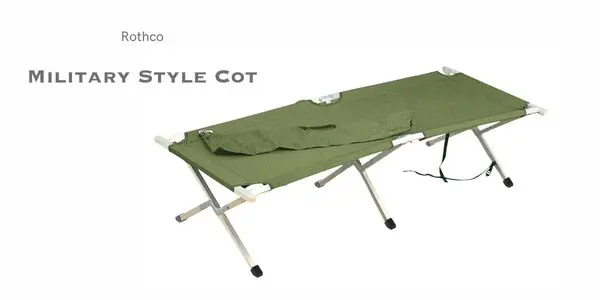
A good generator is important to help you keep warm, too. You can power up a space heater or, if you have a significant generator, you might be able to provide your home with more power to stay warm.
Make sure, if you have a fireplace, that you have plenty of wood on hand to keep you warm during a power outage. You may also want to keep your car filled with gas during the threat of winter weather.
Even if you can’t drive anywhere, you can go to your car (as long as it’s not parked in a garage) and use the heat from the car to warm up for a short period of time. If you do have to drive anywhere, be careful to avoid slippery roads with ice (or black ice) on them.
You will want to have a bug out bag in the car in case you end up stranded and are stuck in the situation for longer than you want to be. Having food, water, a backpack and a way to communicate can save your life.

2 – How to Survive a Heat Wave
Many people solely focus on winter weather when they think of a survival event, but the heat can also cause people to become ill or even to pass away. With a heat wave, you might suffer anything from a mild condition to something more threatening.
For example, you might simply be a little dehydrated because of a lack of fluids caused by the heat. While this may just make you thirsty, it can also drain you of energy and even cause you to feel dizzy.
Something more serious that you can suffer from due to heat would be a heat stroke. If your temperature rises above 104 degrees, you might feel nauseous, faint, and suffer worse results.
If you are out in the elements, you may also suffer from an extreme sunburn condition. If your skin is blistered and you begin to suffer from a fever, feel confused or even chilled, you need to see a doctor quicky.
If you’re at home and the grid goes down during a heat wave, you want to keep your home (and your body) as cool as possible. Don’t open and close the door more than necessary, allowing cooler air to escape.
You can cover your windows with reflective insulating material to keep the sun’s rays out and keep cool air inside. You want to dress in loose, lightweight clothing and if necessary, you can soak your clothes in water (or use a bottle to spray them with mist) to offer extra comfort.
Try not to do any activities during the hot parts of the day. Save those for cooler night or early morning hours when the heat from the sun is less intrusive. You might want to have a rechargeable or battery operated handheld fan that you can use.
You can get solar chargers to keep it in working condition. They also have small, portable air conditioners that you might be able to run with a generator if you’re able to afford one.
One of the most important things you can do to survive extreme heat conditions is to stay hydrated! Make sure you’re drinking plenty of water, and also giving water to your pets, too.
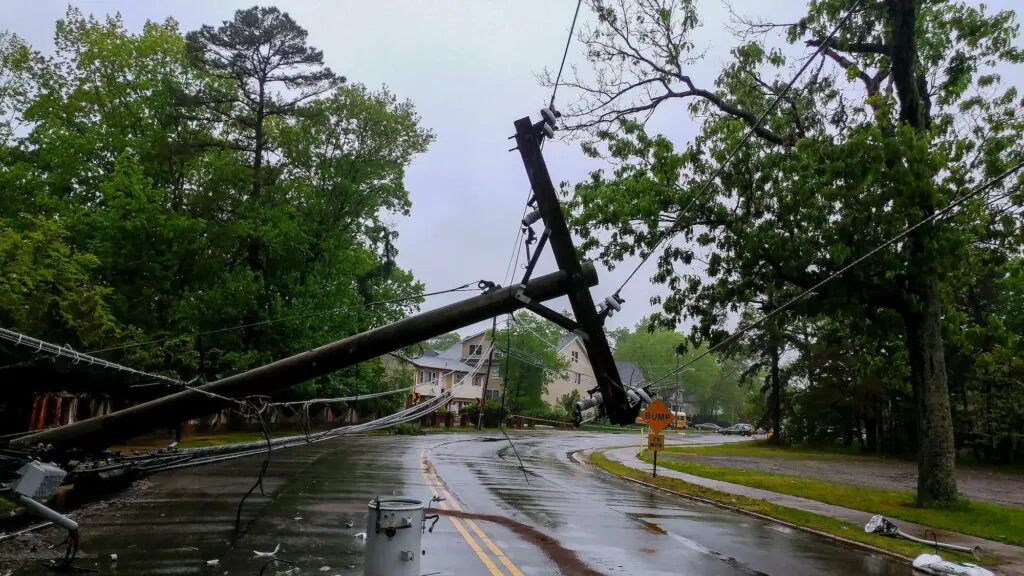
3 – Making It Through a Hurricane Safely
Hurricanes are very destructive wind and rain events that can destroy entire cities, as we have seen in the past. Ranging from a category 1 hurricane with winds up to 95 mph to a category 5 with winds 157 mph and up, the danger can anything from roof damage to total collapse of homes and possible months-long power outages.
There are many problems with being in a location when a hurricane hits, and luckily, you’re given plenty of notice before one makes landfall. However, not everyone can pick up and leave at the drop of a hat, so you need to be ready for anything.
Besides the wind damage that can occur from a hurricane, you might have tree damage that can fall, downed live electrical wires causing dangers, and the absence of clean drinking water for days or even months to come.
During the hurricane, you want to steer clear of the windows in case they get broken and glass or other debris is flying around. Don’t get lulled by a false sense of security when your home is in the eye of the hurricane, because the calm weather will quickly turn violent again.
Evacuation is always a smart idea for life-saving measures. Save up enough to set you and your family (and pets) up in a hotel. Make a list of pet-friendly hotels and make your reservation as soon as you find out you’ll probably need to evacuate.
If you are staying put, you want to safeguard your property from the storm surge as much as possible. You can buy water activated flood barriers to help redirect water from your doorways.
To safely survive a hurricane, you’ll want to have your water stored up, along with ways to purify water if needed. You also want to have some non-perishable food that you have stored safely to eat during and after the storm.
You want to have cash on hand – not only for the evacuation plan, but if you stay put and stores reopen, they may not have access to electricity, so cash will be your only option to purchase what you need.
Make sure you have a flashlight of some sort. You can buy inflatable waterproof lights that can be charged with solar energy, through a micro USB port, or sun on batteries. These can also be used to signal for help.
You’ll want to make sure you have a NOAA weather radio – preferably one that is waterproof and includes a charging port as well as a flashlight built in that can signal for rescue.
You might need a first aid kit readily available in case rescue services are unable to get to you or if they are overwhelmed with calls and can’t make it to you in time to give you remedy.
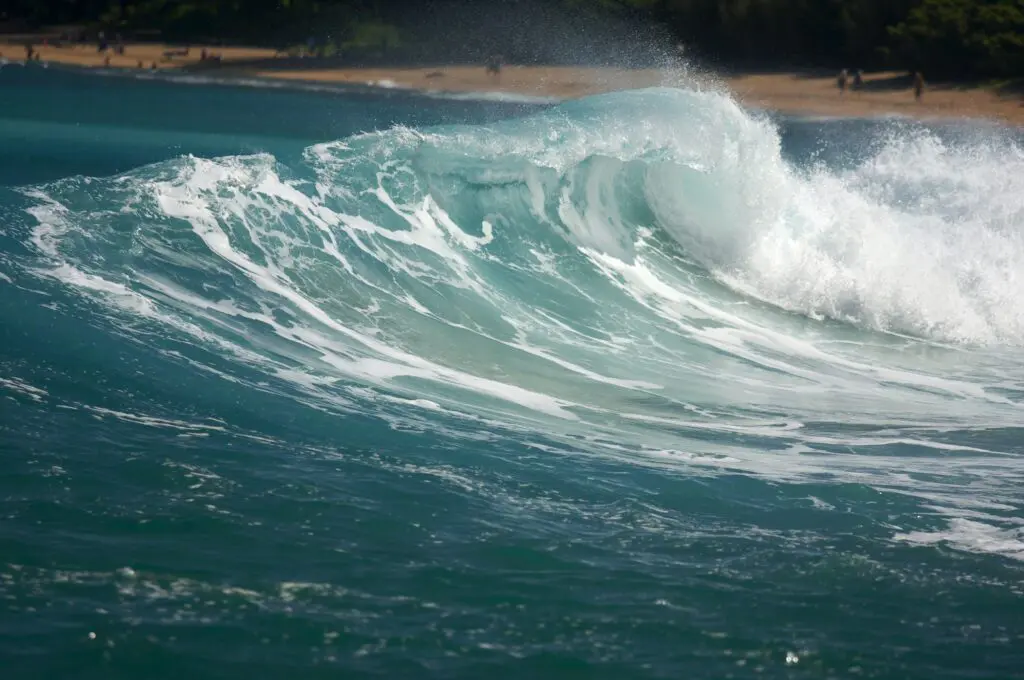
4 – Preparing for and Surviving a Flood or Tsunami
Whether you live in a flood-prone area, or an unusual amount of rain or other water source causes a flood in your area, you need to know how to survive this type of natural event.
A flood can be anything from a build-up of water in one area over the course of minutes or hours – or it could be caused by a tsunami, which is a large wave that hits the land in a destructive force after being brought on by an earthquake or some sort of land shift under water.
This kind of water event can cause minor damage and inconvenience, or it can cause massive destruction to homes and lives. You want to make sure you evacuate to higher land if and when possible, but never try to cross an area with fast moving water.
If you are in an area struck by this type of water situation, you might not have access to clean drinking water. Make sure you have a way to purify water, and try to have extra clean water on hand to get you through.
If you are caught in a flash flood situation, such as in your car, and the car begins moving in the water and becoming submerged, try to get out through a window and get on top of the roof of your car until you can find something to hold onto, like a sturdy tree.
If you’re in a location where a tsunami hits, you need to know the signs ahead of time, such as all of the water by the shore being sucked out before coming back in. That is not the time to head to the beach to search for seashells.
Race for higher ground, farther inland. Don’t wait to see when the wave will strike because it will be fast moving and you won’t be able to avoid it if you’re waiting too long. If you are caught in the water when it hits, hold onto debris and stay afloat.
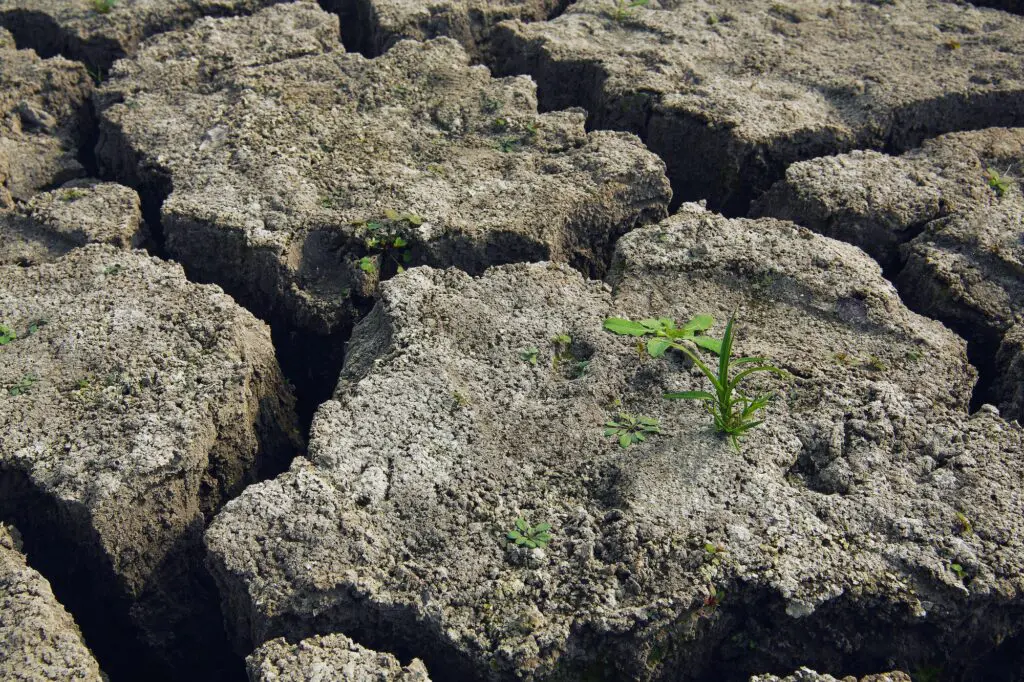
5 – Severe Damages a Drought Can Cause If You’re Not Ready
Many people underestimate the damage that a drought can bring about to a particular location, but for those who have lived through one, the danger is clear. A drought is when you go for long periods of time without rain.
This can put your area in danger of being without a water source. It brings devastation to local crops and can cause dust storms and respiratory issues along with allergies to act up.
If you’re growing your own garden or raising farm animals for survival, you might find it difficult to do this during a drought. It can also cause damage to your foundation in your home.
Currently, we haven’t experienced decades-long droughts since the dust bowl in the late 1920s-1940s. But certain regions are more prone to droughts and the damage they can do.
California is the most commonly affected state, but Arizona and Texas as well as others see some form of drought periodically, too. Long-term drought would cause major health issues such as malnutrition and disease.
You can reduce your water consumption wherever possible so that you’re not wasting water. This includes ensuring the plumbing in your home is not leaking and also investing in water-saving appliances and toilets.
Make sure you have rainwater collection gear on hand and stock up whenever possible so that you have a water supply ready when and if you need it. It’s hard to store enough drinking water for months and years, but do your best to have what you’ll need on hand and get water purification tabs, too – in case you have to drink from stagnant, natural water sources.
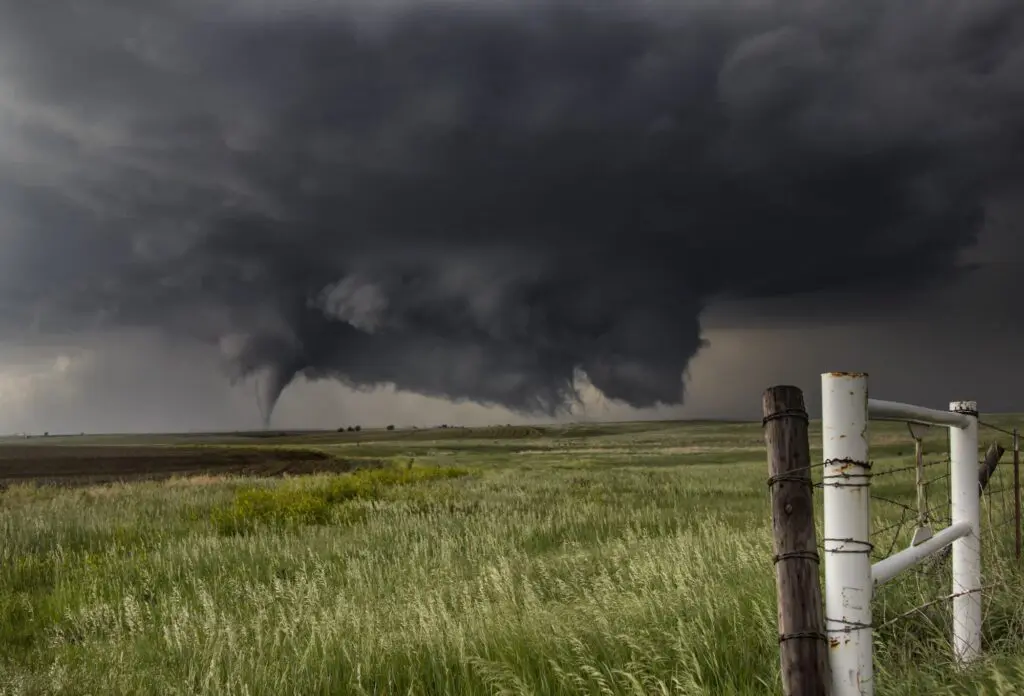
6 – Important Tornado Survival Preparations You Need to Make
While you can never predict exactly where a tornado will hit, or its severity, you do get a bit of advanced warning about the possibility of severe weather that could result in tornadoes.
This may be enough time for you to bug out to a new location. But, most people stay put and make preparations for that situation instead. If you are in a home that is prone to total destruction in a tornado, such as a mobile home, you may want to get to a safer comment more formidable construction.
In a tornado, not only are you at risk of being hit by the high winds that can lift you up and throw you to another place, but you can also be struck by flying debris and objects that have been relocated by the destructive winds.
If you can afford it, you want to have a tornado shelter installed in your home. Pay attention to news and weather reports so that you know when you need to seek shelter. Your local government should have installed tornado sirens that you can also pay attention to.
If you can’t afford a tornado shelter installed in your home, you may want to go to a basement or to a room within your home that does not have any windows. Do not stay on a second floor of your home – make sure you are on the bottom floor.
If you happen to be caught in a car during the tornado, it is safer for you to get in a ditch and lay down flat than to have the tornado pick up the vehicle and throw it elsewhere. If you cannot leave your car, stay low and cover your head to avoid any glass from breaking windows.
Usually, tornadoes come and go in a matter of minutes. However, in some instances, you will have multiple tornadoes that hit an affected area. Often, these hit in the night hours, so you need to make sure you have something that you can see with so that you can avoid any dangerous aftermath debris.
Depending on the weather, you may need to have some sort of bug out bag that can help you get through the night until you are rescued. This should include some form of blankets or sleeping bags, a tent to keep you protected from the rain, flashlights, food, and more.
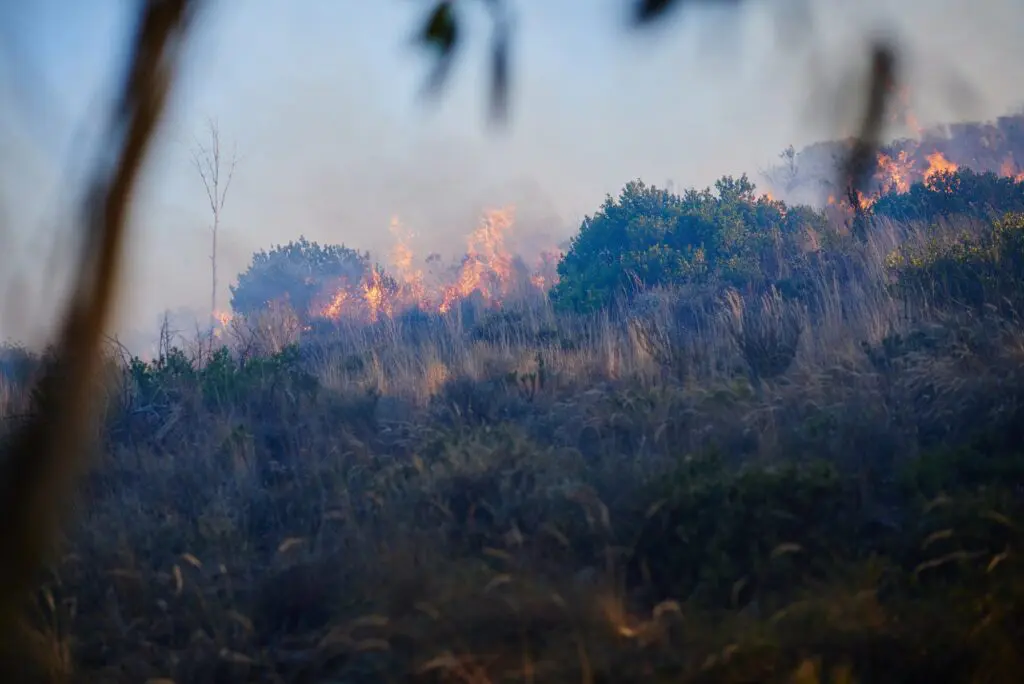
7 – What You Can Do to Survive a Wildfire Event
Wildfires are often thought to be man-made events, and they usually are. But not always. Some are caused by lightening strike. The natural danger of a wildfire is the surrounding conditions of the land.
When an area is in a drought situation, and the land surrounding it is dry and overgrown, a lightening strike (or something else) can use those conditions to fuel an out of control fire that poses a huge threat to you and your property.
People are often warned to evacuate and instead stay and try to fight the fire on their own. This is a bad idea, because even if you have a car thinking you’ll escape if it gets too bad, many have gotten trapped trying to drive through wildfires and ended up deceased.
If you do get trapped at home with no way to escape, grab a fire extinguisher to have on hand and quickly fill a bathtub with water (and your sinks, too). Notify emergency services of your location and just like in a tornado, stay away from windows and doors.
Soak some clothes or towels and place them under the door too prevent smoke from flooding your room. You want to have flashlights on hand in case you’re stuck without power and need to see or signal for help.
If you do have time to prepare and plan, you can use a hose or sprinkler to soak the outside of your home and yard. Be sure to shut off any gas and get any propane far from your home.
If you live in an area prone to wildfire threats, make sure you have masks that can help you breathe. You’ll also want to stock your first aid kit with some bandages and burn ointment and have access to (or knowledge of) more than one way to escape your property and get to safety.

8 – Tips for Surviving an Asteroid or Meteor Strike
There have been many movies made in the Hollywood about large meteors or asteroids hitting the earth and being the end of civilization as we know it. While it’s certainly true that something like this could happen at any moment, it’s more likely that a smaller meteor or asteroid would have a lesser impact.
Shelter will be your best friend in a situation like this. You need to have reinforced walls that can handle the impact. You will also need enough food and water as well as other supplies to get you through a prolonged period where the atmosphere makes it difficult to grow food.
Keep in mind that most of the earth is covered in water, which is where an asteroid or meteor would be most likely to hit. However, that also means that if one hits, a tsunami would be likely to result from the impact.
You would want to be further inland to avoid that. The best thing you can do is to stay informed about any predictions that are being discussed by scientists and experts about possible collisions.
When you can afford it, you will want to invest in some sort of bunker or structure that can withstand something of that magnitude. Having a large supply of food and water, combined with the fortified structure, is what will get you through this type of situation.
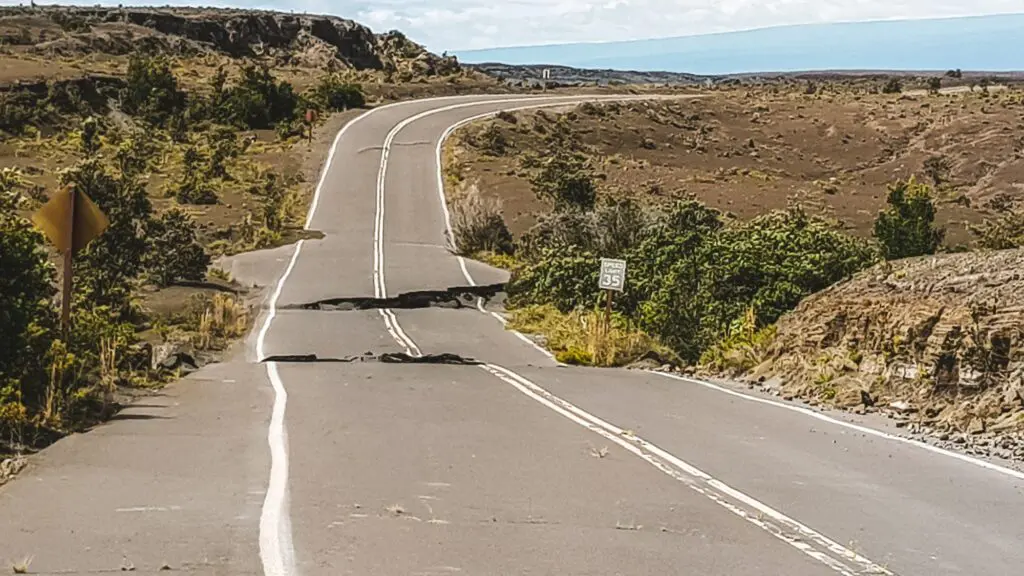
9 – Expecting an Earthquake and Making Preparations for One
Geologists are constantly warning about the potential for a life shattering earthquake in California. Every year, there are earthquakes that strike that region as well as others that cause injuries and death.
This is a situation where the tectonic plates in the earth shift, causing buildings to fall or be unsafe, and other hazards. As with other natural disasters, you will want to have a bug out bag that includes your food and water, along with a first aid kit and flashlight or other supplies that you normally need when you’re on your own.
You may have to evacuate the area if your structure is unsafe, or if but there are more earthquakes predicted to hit in the near future. If you are in a location when an earthquake hits, you want to protect your head from any falling objects.
Many people used to think that you should evacuate a building during an earthquake, but experts advise you to stay inside if you are already inside. You don’t want to be anywhere near glass that could break or near heavy objects that could tip over.
If you happen to be traveling in a car, you want to stay in your car in a parked position until they’re shaking has stopped. Regardless of where you are, keep in mind that power lines may have fallen that can be deadly.
You want to be tuned into emergency broadcast radio stations so that you can get important safety information and instructions about what you should be doing next or where you should be going.

10 – How a Volcano Eruption Could Bring About Destruction
Volcanoes are located in many different regions, but not all of them are active or as explosive as others. Experts can usually tell in advance when a volcano is expected to erupt, giving you time to evacuate.
However, this is not always true. The main thing you need to be careful about is breathing in an area that has experienced a volcano. The ash that falls from the sky can be very hazardous to your health.
It can also be dangerous if you live near a volcano, if your structure is not built to withstand the heavy amount of ash or the flow of the lava that could get near your building.
If government officials issue an evacuation order, make sure that you follow it so that you are not stuck in a dangerous situation. If you are caught in a volcanic eruption, make sure you take shelter and seal off any openings that could allow for and infiltration of your ventilation system.
Because the ash can be hard to see through, you may need additional cleaning supplies in addition to your food and water, to help you clear off your windows in the car so that you can see to escape a hazardous area.
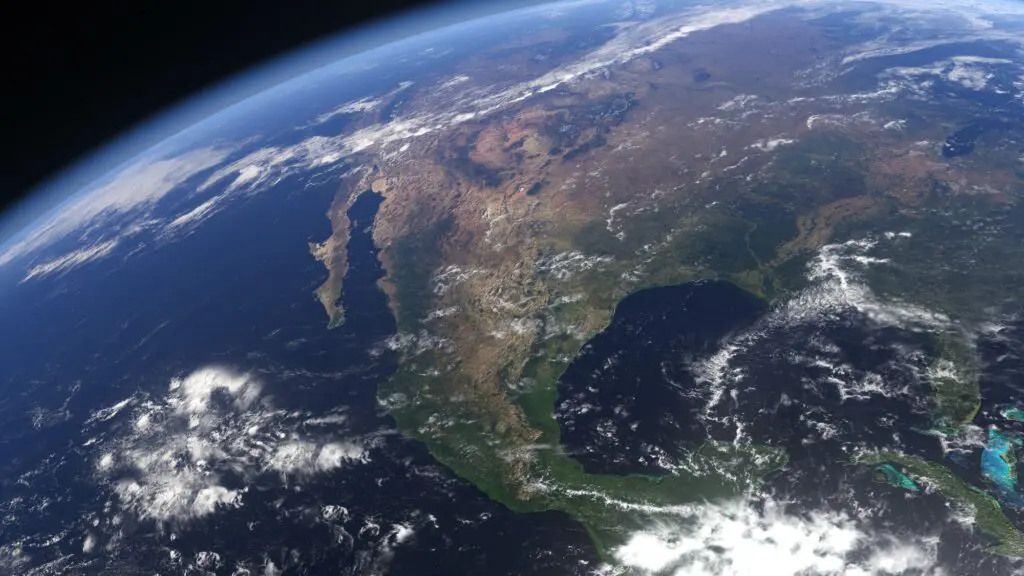
11 – 3 Earth Shifts That You Have to Be Ready for
We’ve already talked about tsunamis, which are caused by an earthquake or some sort of shift under the water. But there are land based shifts in the Earth’s surface that can bring about a dangerous survival situation.
These three include a landslide, a mudslide, and an avalanche. With a landslide, a slanted area of land chefs and causes all of the top of the Earth’s surface to tumble downhill on top of whatever is below.
A mudslide is similar in how it works, but instead of dry rocks and debris, you will have a sliding block of mud or clay, depending on where it’s located, that is traveling downhill almost like hot lava.
With an avalanche, the same type of situation occurs, but instead of rocks or mud, a massive block of snow breaks up and begins to tumble downhill, covering everything it comes in contact with.
Pay attention to common warning signs if you are living in areas that are prone to landslides. You might notice shifts in your foundation, or begin seeing water issues on your property that were not there before.
Sometimes, you can even hear the beginnings of a landslide, and it may start out slow and develop into something more serious. If you live in an area prone to landslides or mudslides, make sure you have notifications on for alerts.
Unlike tsunamis and tornadoes, in a landslide, you will want to get to higher ground, so you can go to the second story of your home if you are not evacuating. If you are caught in the middle of a landslide, make sure you cover your head and protect it from falling rocks and debris.
People who are caught in an avalanche, are often engaging in outdoor snow sports. If possible, try to make your way to the side of the avalanche so that you are not caught in the deepest snow.
If you do you get buried in the avalanche, try to position yourself with your arm up so that rescue teams can reach in and pull you out. The biggest problem with being buried in an avalanche is not being able to breathe.
Therefore, you want to create space in front of your face and chest that will allow you to breathe without feeling as if you’re being crushed and suffocated. If you are going to be involved in snow sports where you are putting yourself at risk of being caught in an avalanche, make sure you have a beacon with you that will transmit your location to authorities.
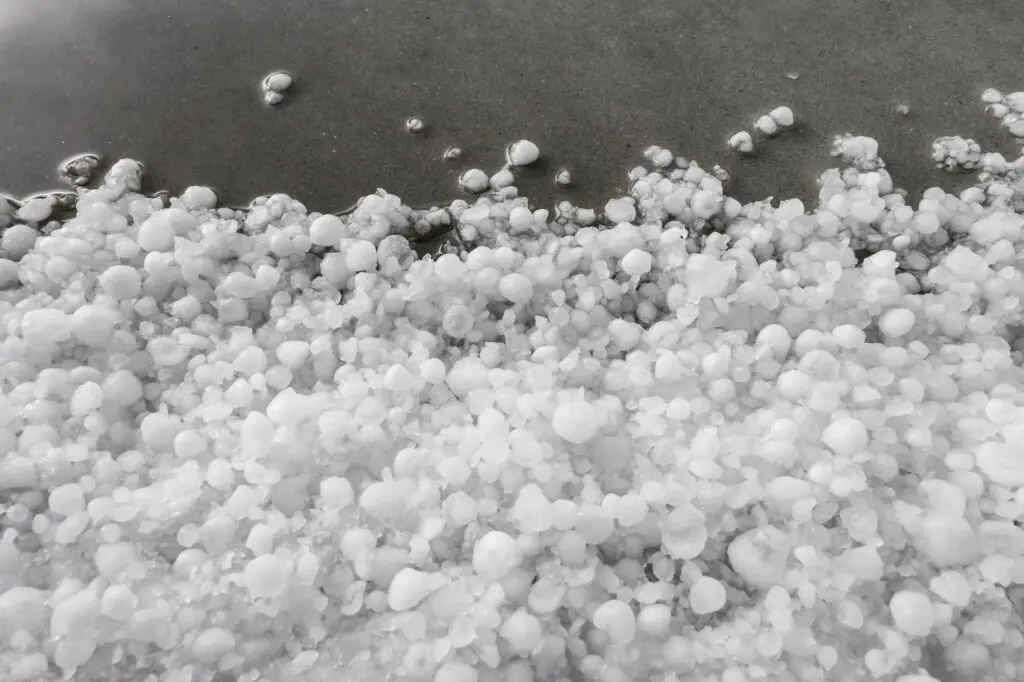
12 – Surviving Sand and Hail Storms and Minimizing Damage
While it may not sound so deadly, dust storms or sandstorms as they are commonly known, can stir up massive amounts of dust particles that can cause problems for you. If you are driving, getting caught in a sandstorm can cause you to lose visibility and crash.
Being caught outdoors and a sandstorm can be very terrifying. Most people are not used to seeing a big wall of sand barreling down on them. If you are in an area that is prone to sandstorms, make sure you have some sort of mask that you can cover your face with and breathe better.
If possible, seek shelter indoors or by standing behind something that will prevent you from being hit with the flying sand. If you are at home, make sure you have all doors and windows closed and sealed.
Hailstorms are a different type of natural disaster that can come about suddenly. They can range from small pebbles to softball sized ice balls that can damage your property or even cause serious injury.
The best thing you can do to survive a hailstorm is to seek shelter immediately. Because some hail is massive in size, you want to stay away from any windows that could break and cause flying glass.
Property damage is the most common problem associated with hail. It can ruin your car and the roof of your home. There are protective covers that you can purchase for your car to protect it from hail, and you want to make sure that you have plenty of insurance to cover any damage to your roof.

13 – Survival Preparations You Can Make for a Solar Flare Event
When you’re talking about survival, the concept of solar energy is usually a beneficial one. Having solar gadgets on hand is a wonderful way to have a renewable source of energy for charging your gadgets.
However, the sun can also cause problems for you from a survival standpoint. a solar flare is a large burst of radiation that comes from the surface of the sun. It can be anywhere from a minute to hours and length.
The good news is, our atmosphere protects us from most CMEs (coronal mass ejections) from the sun. But the technology isn’t as sturdy as you may think in withstanding the effects of a solar flare.
Solar storms are usually fairly easy to predict and forecast in advance, but they still have the potential to do a lot of damage to our electronics and our grid in general. Make sure you invest in a whole home surge protector.
The best way to prepare for a solar flare survival situation is to be ready to live off the grid for an extended period of time. Prepare for a solar flare by buying everything you would need for a long period without electricity.
Have your non-perishable food and water supplies stocked up. If there’s no electricity for a long time, be prepared to protect your home and loved ones from intruders who might be going door to door looking for supplies they can steal.
Being prepared for natural survival events is imperative, regardless of where you live, work and travel to. Your preparation plans should include stocking up on necessities, knowing how to navigate one if you’re caught in it, and paying attention to predictions and news about likely events so that you can avoid or prepare for them as soon as possible.

